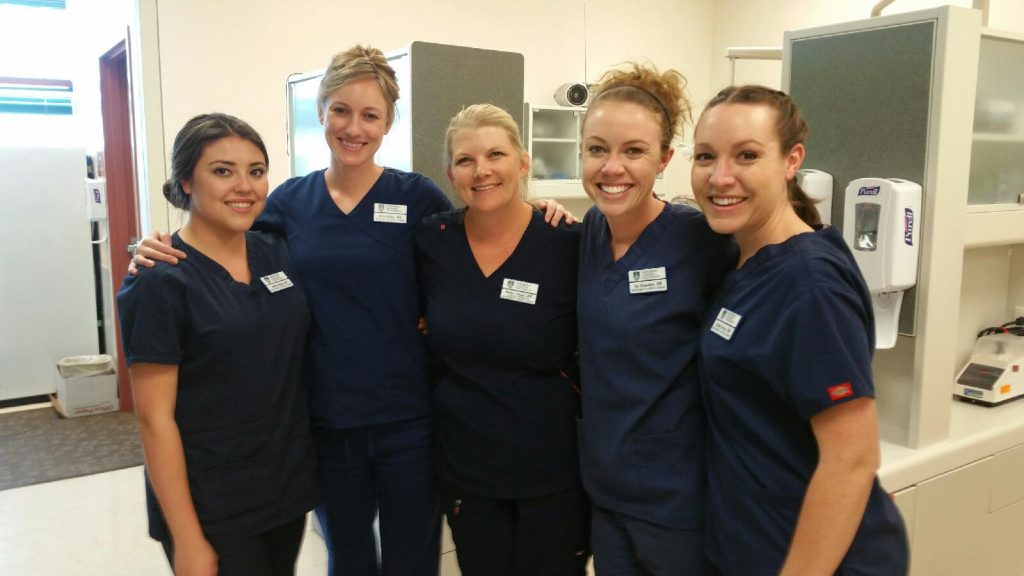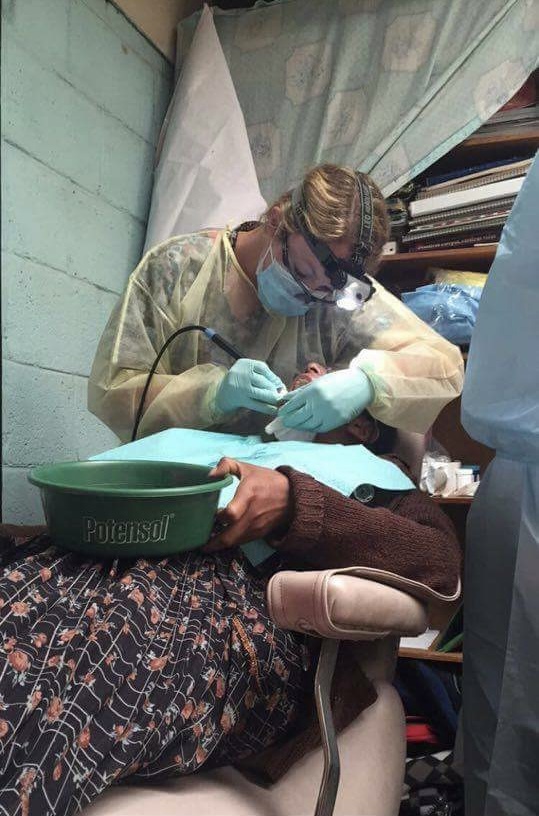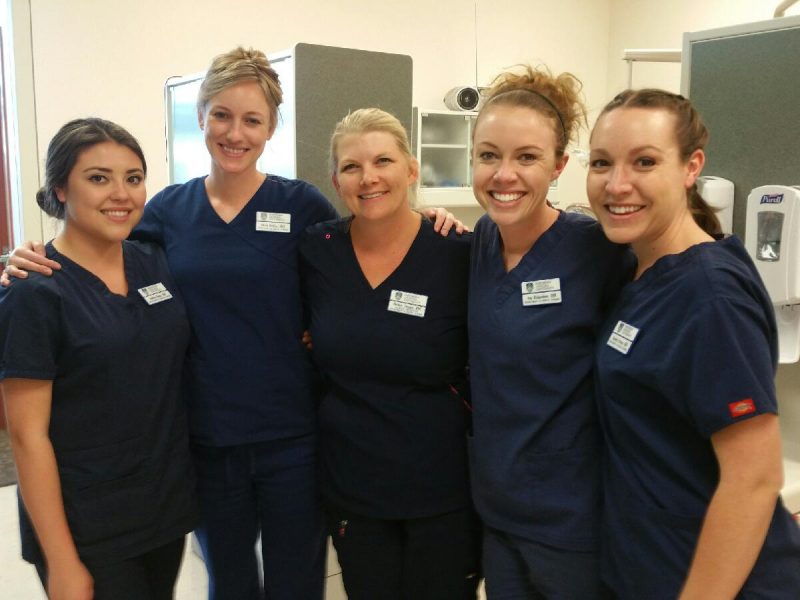Alumni Career Q + A with Annie Walters, Dental Hygienist

Name: Annie Walters, MSDH, RDH
Occupation: Registered dental hygienist and consultant
Graduation year: 2017
Why did you choose to go down the career path that you did?
I chose to become a dental hygienist for a number of reasons. For starters, I knew I wanted to work in healthcare, I enjoyed science/technology, and I liked working with my hands. Dental hygiene also called to me because I liked the thought of building relationships with my patients and being an advocate and partner in their overall health. Dental hygiene is constantly evolving, and the mouth is the “window to the rest of the body.” So, I really wanted to play an integral part in the health and wellness of my patients. The flexibility of a dental hygienist’s schedule and the opportunities for career growth/advancement outside of working in an operatory was another reason that I chose this career.
How did NAU prepare you for your career?

NAU was pivotal in preparing me for my career. The opportunities I was given to provide care to patients not only in the clinic on campus but in other locations like Hopi, Yavapai, Winslow, and in the schools in Sedona really fueled my passion for public health. NAU provided me with experiences that shaped me as a student dental hygienist but also set me up for my career after graduation. To this day, I still utilize the same principles I was taught in school—whether it is how I document my chart notes, how I administer anesthetic, or how I communicate with patients about treatment recommendations. NAU provided me with a foundation that I continue to rely upon and build upon today.
Why should others consider pursuing a career in your field?
I would encourage others to pursue a career in the field of dental hygiene as it is a career that you can take with you anywhere and will always be in demand. You have control over where you want to practice, how much or how little you want to practice, and how you manage a patient’s oral healthcare. As a dental hygienist, you are a healthcare provider and are given autonomy in your practice because of the education you received. Dental hygienists are critical members of a patient’s healthcare team. Research has shown that up to 50% of heart attacks and strokes are triggered by oral pathogens.1 Dental hygienists have a direct influence on this and have the ability to change this statistic by helping their patients achieve maintenance of their oral health. This is why I would encourage others to consider pursuing a career in this field.

What do you hope to see in the future for your profession?
I hope to see increased interprofessional collaboration so that the healthcare model can be more comprehensive. Significant research is pointing to the oral systemic connection and the critical role dental hygienists play in oral health prevention and maintenance. However, if the standard of oral healthcare is to be elevated and dental hygienists are to truly be members of a patient’s comprehensive healthcare team, then the way we communicate with providers outside of the dental setting must change. This is why I hope to see more dental hygienists in primary care medical offices, hospitals, pediatricians’ offices, and prenatal care settings just to name a few.
What’s the best part of your job?
The best part of my job is the relationships I build with my patients. Not only do I get to help them achieve their oral healthcare goals through treatment and individualized oral healthcare regimens, but I also get to know them personally. There are patients that will leave a lasting impact on your heart, and those are the ones I am grateful for. There will also be patients that confide in you and look to you for a hug or a listening ear. Of course, I am an oral health care provider, but I am also a person and I think that part of my job—the part that allows me to really connect with patients—is truly the best part.
What would you say to a student interested in pursuing your profession as a career?
I would say if you are interested in pursuing this profession as a career, take time to research the career, go around to various dental offices, and ask if you can shadow their hygienists. This will give you good insight as to what day-to-day practice looks like, and it can certainly look different between offices and hygienists. Having a good understanding of what to expect in this profession will be critical. I have always said that dental hygiene is a lot more than just a job to me. It is my passion, and I have known deep in my heart that this is what I was meant to do. So, take time and reflect on your values, goals, passions, strengths, and weaknesses, and be sure that this profession is in alignment with you.

What are some ways you practice self-care to avoid burnout / what do you do for fun?
I am going to be honest, burnout is real and many hygienists experience it—myself included. Experiencing burnout doesn’t mean that’s the end of the road for you. You just have to know how to manage, pivot, and take care of yourself so that you can show up and be the provider you know that you are. Those experiencing burnout, or to avoid burnout, I always encourage going back to your “why.” Why did you get into this profession in the first place? Really reflect on those values and your purpose. Taking time for yourself and practicing self-care is so critical. It almost sounds redundant because I feel that self-care and mental health are topics so widely discussed these days, but for good reason! Things I like to do for fun that allow me to care for myself and truly fill me up: going for a hike on a sunny day, spending time with my husband and our two golden retrievers, practicing yoga, cooking, baking sourdough, and reading.
References
- Fernandes F, Pont APC, Barbosa KF, et al. Periodontitis as a risk factor for stroke: A systematic review and meta-analysis. Vascular Health and Risk Management. 2019; 15:519-532.

